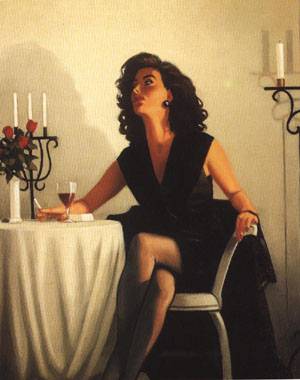At LAX they took away my small water bottle but let me carry on my manicure kit with a nail scissor. I knew it would be OK because I checked on the TSA website. In Paris, however, en route to India, they took away the scissors. To my protests the agent replied, "Each country has different requirements." I recognized the sneaky smile as she admired my fine scissors; I knew it would be in her purse as soon as I turned my back. I thought of speaking to a supervisor but the prospect of messing with French security agents seemed worse than losing my precious scissors. In India, flying to Kashmir on a local airline, I carried on two liters of water & the remainders of my manicure kit, and no one cared.
India is different.
Let me save you a lot of time and money. Turn your car motor on, stick something on the horn so it honks very loud, non-stop; wrap your lips around the exhaust pipe, breath in deep, close your eyes―you're in Delhi.
Like all big Indian cities it's pure torture. You haven't seen traffic until you've been assaulted by this incessant surge of horn-blowing trucks, buses, motorcycle rickshaws, bicycle rickshaws, human rickshaws, motor cycles, bicycles, cows, dogs, runaway goats, pushcarts, wheelbarrows, beggars with every form of infirmity… did I leave anything out? The odor of garbage and excrement; a swarm of humanity.
Next day I took the first plane out to Srinagar in Kashmir, the northernmost part of India, disputed territory between India and Pakistan, 90% Muslim. Kashmir is bordered by India, Tibet, China, Afghanistan and Pakistan, which probably explains all the soldiers carrying AK-47's and Kalashnikovs. Iwas the only non-Indian in the arrival area, and even though it was a domestic flight they required me to fill out forms with all my information.

Abdul was waiting for me outside the gate. We
drove past heavily guarded, barbed-wired
checkpoints to the lakeshore, also heavily guarded, where a shikara, a small wooden gondola, waited to paddle us to the houseboat, "The New Alzira," a floating mansion on Dal Lake, 2000 meters high in the Himalaya Mountains that will be my home for a week in Kashmir.
Serene beauty; Moghul Emperors called this place Paradise on Earth. Reports of violence keep most foreign tourists away but, "it's all media hype," according to Shafi, my travel agent in Delhi, cousin of Abdul, son of houseboat owner, brother of houseboat manager, who guarantees my safety. Shafi's family is taking care of me; they don't let me out of their sight.
Pure clean air, peace, quiet; daytime is warm and sunny; tee-shirt weather, but cold at night. I feel like the Queen of Sheba in my carved wooden filigree, huge four-poster bed with piles of blankets and quilts plus two hot water bottles tucked under the covers, in a stateroom whose walls and vaulted ceilings are hand-carved cedar wood, with crystal chandeliers, stained glass windows covered with embroidery and lace, thick Kashmiri carpets on the floor... plenty of hot water too.
They've loaned me a Kashmir wool full-length cloak, warm as feathers, which I put on when the sun goes down. Lassa, the houseman, sees to my every need: serves my breakfast on the sunny terrace overlooking the lake and mountains, lunch and dinner in the luxurious dining room, and pots of fragrant green Himalayan tea twice a day.
The water is shallow on the houseboat side of the lake, filled with greenery below the surface, lily pads, lotus flowers, water plants I can't identify. It's gorgeous. The lakeside is undeveloped, no tourist hotels or noisy motor boats. Canopied gondolas glide by carrying people from houseboats to the shore, merchants selling flowers, saffron, fruit, anything you want.

Lassa paddles me and Abdul to shore. We visit Moghul Gardens and the crowded bazaar in the old town of Srinagar. Abdul enters the Mosque to pray. I take pictures outside in the garden; nobody minds. Armed soldiers everywhere. Sometimes our car is stopped and searched. Abdul says it's to keep the soldiers busy who have nothing else to do.
We stop at brother-in-law Gulzar's shop, Cottage Emporium, to look at carpets and shawls. Since I already announced I have no intention to buy I've asked to see their finest examples. Gulzar shows me a small dark blue silk Ardible carpet that shimmers like jewels; it took ten years to weave; the price $30,000. He says the weaver's family will get all but 10% of the money. Gulzar's business maintains 250 families that have been weaving carpets generation after generation.
Uninterested in ubiquitous Pashmina, I asked to see the infamous Shotoosh shawls, made from super-fine chin-hairs of mountain goats that are sacrificed for the purpose. Gulzar spreads a carpet on the floor and opens a small case filled with shawls. "These were made before they were declared illegal," he explains, displaying them one by one. We both pretend I believe this story as I finger unbelievable softness and admire exquisite embroidery. About $2000 for a shawl―so hard to resist but I manage.
(Hey! The chicken I ate for dinner was killed for my pleasure too.)

They're celebrating Ramadan now, fasting, praying, going twice daily to the Mosque which emits a broadcast with loudspeakers calling the faithful to prayer, reminding them five times a day that Allah is great. The prayers resound over the lake and echo through the Himalayas. Tomorrow is Eid, marking the end of Ramadan; I'm invited to attend the family feast, which I shall not miss.
 I’ve given up coffee; can’t drink the tasteless dark vapid liquid—Nescafe—they call coffee in the north of
I’ve given up coffee; can’t drink the tasteless dark vapid liquid—Nescafe—they call coffee in the north of  ill.
ill.







